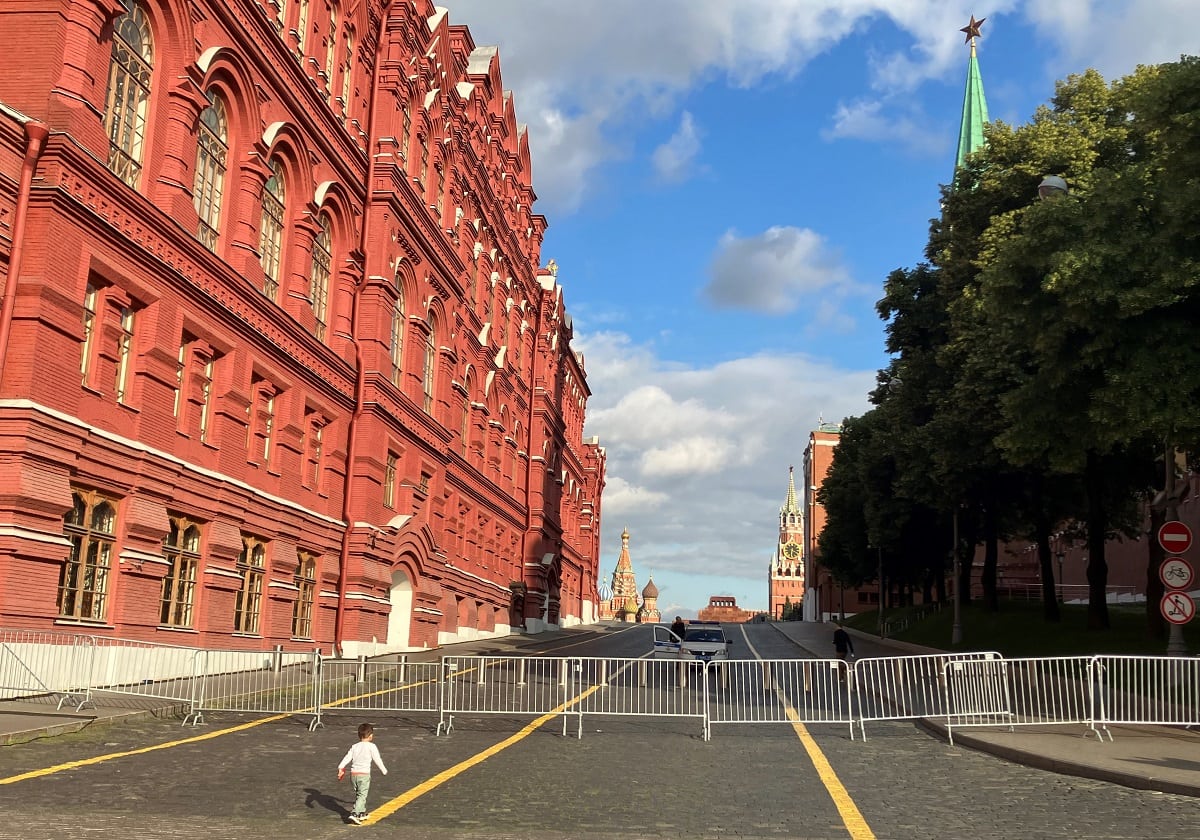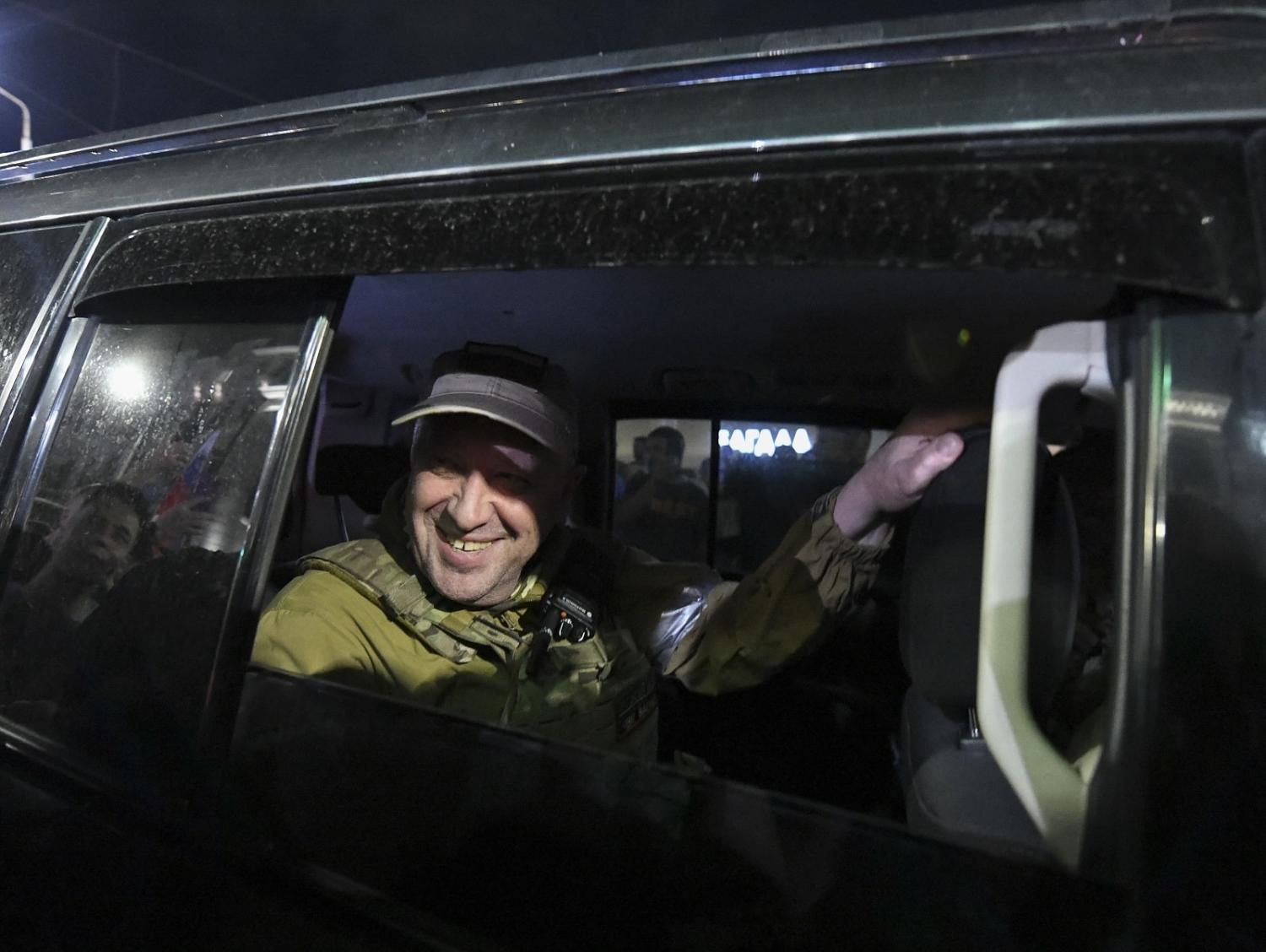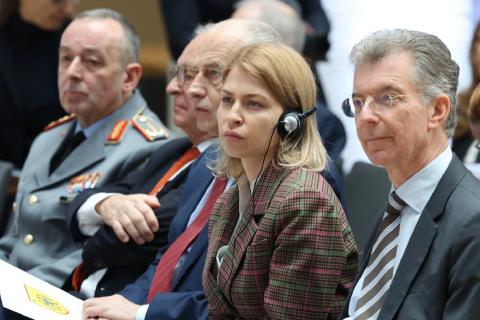The crisis occasioned by Wagner Group leader Yevgeny Prigozhin’s short-lived mutiny is over, but real uncertainty and questions about the future remain – for all involved.
This was the first armed insurrection in Russia for 30 years. It has shaken the foundations of the ruling system refined by Vladimir Putin over that period. This rebellion saw the Russian president challenged – and risking being consumed – by the monster he’s created. He can blame no one but himself for what has unfolded over recent days.
The Kremlin has fostered and encouraged Prigozhin’s private ventures for the past decade. Initially, it was the Internet Research Agency, a troll factory based outside St Petersburg, that from 2013 churned out disinformation intended to undermine Western governments and promote far-right populism in Europe and the United States.
Prigozhin then set up the Wagner Group, a private mercenary outfit, initially deployed to foment armed rebellion in eastern Ukraine in 2014, but subsequently active in Syria and in Africa, where they provided security (sometimes in return for lucrative resource extraction concessions) in countries such as the Central African Republic and in the Sahel. The Kremlin saw Wagner as a useful – and deniable – tool for extending Russian power and influence.
Tension and rivalry between Wagner Group and the Russian defence establishment have grown over the past year. Prigozhin’s criticism of Russian military leaders, notably Defence Minister Sergei Shoigu and Chief of General Staff Valery Gerasimov, as inept and corrupt has sharpened and become more vociferous.

The fact that Prigozhin was able to launch such verbal sallies unfettered suggests he has enjoyed a level of Kremlin protection and indulgence. Indeed, many have thought that Prigozhin served Putin’s purposes in keeping pressure on the military establishment over their conduct of the Ukraine war.
This would be typical of Putin’s personalistic, divide-and-conquer style of government. Putin has tolerated, and even encouraged, rivalry between competing factions in the ruling elite, fostering ambiguity as to where his loyalties and preferences lie, while remaining the ultimate arbiter, and thereby checking the ambitions of any single potential rival.
But the Kremlin’s tacit support clearly emboldened Prigozhin. His feud with the military leadership escalated and veered out of control. Putin finally appeared to side definitively with Shoigu and Gerasimov in calling for Wagner soldiers to sign contracts with the Russian military by the end of June.
But too late. Perhaps sensing that the Kremlin tide was turning against him, Prigozhin edged closer to direct criticism of Putin. Hitherto, his attacks had been directed at the defence establishment over how they were waging the Ukraine war. But this week, he challenged the whole rationale for the war – blaming Russia’s military leaders but implicitly amounting to an attack on Putin himself.
The die was cast for outright confrontation, which duly unfolded over 23–24 June.
In his national address on 24 June, Putin spoke bitterly of treason and betrayal, warned of the risks of anarchy and fratricide, and vowed to quash the rebellion ruthlessly.
Just hours later, though, came the surprise announcement of the deal brokered by Belarusian leader Aleksandr Lukashenko, under which Wagner forces would stand down, and be either pardoned or absorbed into the regular Russian army, while criminal charges against Prigozhin would be dropped with the Wagner boss himself going to Belarus.
The agreement raises more questions than it answers. The Kremlin is not known for magnanimity when it comes to dealing with opponents, let alone those involved in an armed insurrection. It’s hard to see Prigozhin living the quiet life in Minsk for long.
It’s early days, but what conclusions can we draw from this bizarre sequence of events?
Agreeing so quickly to strike a deal with Prigozhin suggests that uncertainty, even fear, reined in the Kremlin over the insurrection. Perhaps the Kremlin feared that, unless it was quickly nipped in the bud, Prigozhin’s mutiny might garner support from dissatisfied elements of the Russian military. And potentially even more widely as social media spread news of the rebellion among the populace. Certainly, the rebellion raises real questions over the loyalty and reliability of the Russian armed forces. How, for instance, were Wagner forces able to move pretty much unchallenged into Rostov-on-Don, home to the Russian southern military command?
At the very least, this episode has dealt a severe blow to Putin’s authority and credibility. He is a diminished figure. Putin clearly underestimated the dangers posed by Prigozhin’s challenge, not least the perils and folly of tolerating private armies on Russian soil.
Behind this lies a bigger uncertainty of just how brittle the Putin system of government might really be. Those around him in the elite may start to question whether the long-time leader and patron can continue to reward their loyalty with security and wealth.
More immediately, though, the Kremlin is likely to take steps to clamp down even further on dissent at home, and demonstrate its authority and control – both to the Russian people and abroad.
Whatever happens, events are still unfolding, and this is clearly not the final chapter in the story – whether for Prigozhin, Putin or Russia.

